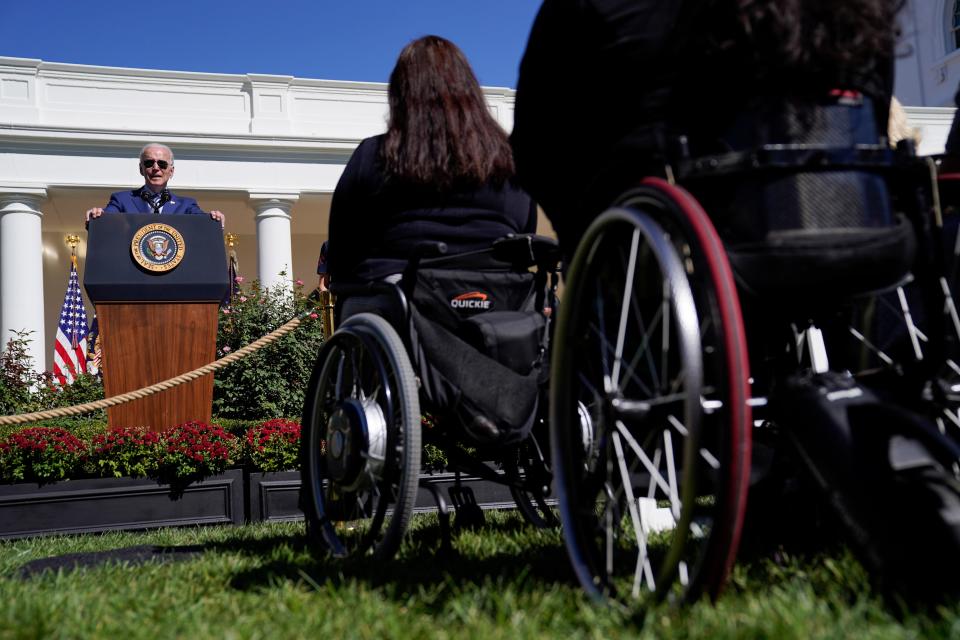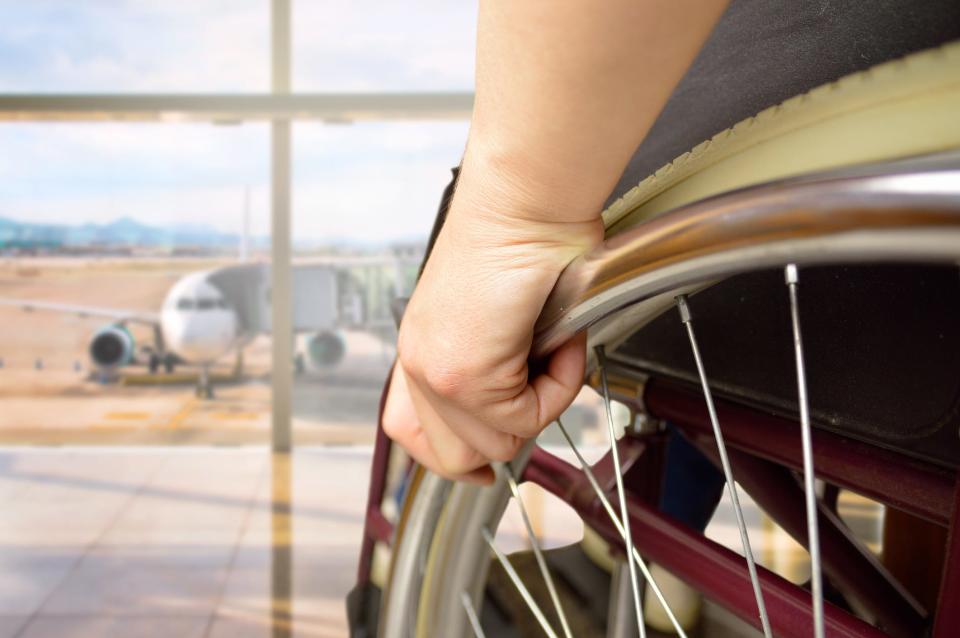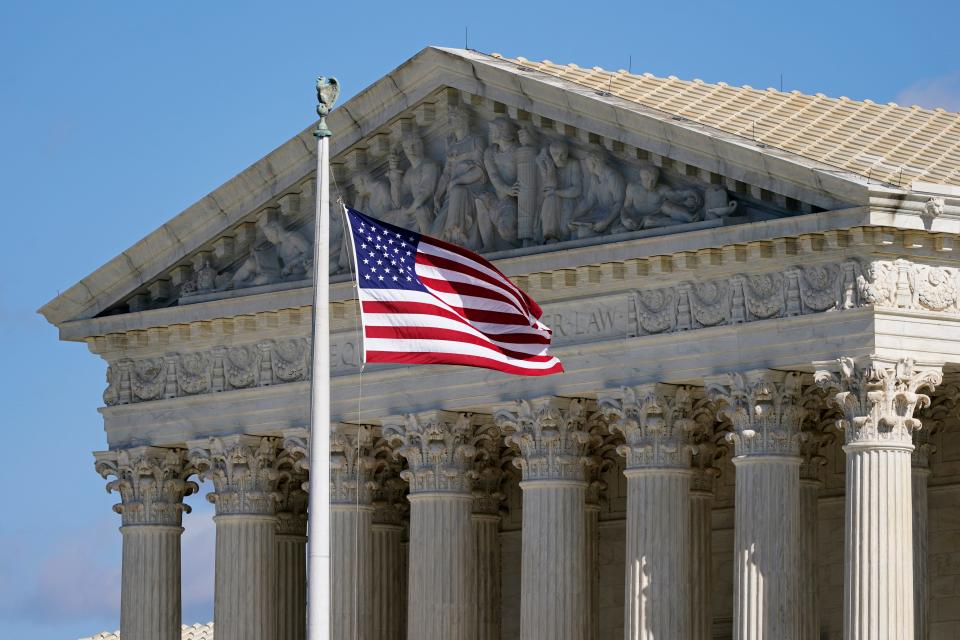'Sleeping in my car.' This Supreme Court case could change how disabled Americans book hotel rooms
WASHINGTON – When Julie Reiskin books a hotel, she worries about the usual potential nuisances: A noisy TV in the neighboring room, say, or subpar air conditioning.
As a wheelchair user, Reiskin also agonizes over whether she'll be able to get through the door.
Reiskin and millions of Americans living with a disability rely on hotels to make note of accommodations like ramps and roll-in showers on their reservation websites, disclosures that are required by a 2010 federal regulation. Advocates fear a Supreme Court case this year could undermine the requirement, making it harder to punish hoteliers who defy or overlook it.
"Once you're at the hotel and there's no shuttle, it's not like there's something somebody can do about it then," said Reiskin, a disability rights advocate in Denver. "It would be really nice if I could look at a website and have reliable information."
At issue for the Supreme Court is whether self-styled "testers" who scrutinize hotel booking websites for a lack of information about accommodations may sue those hotels in federal court – even if they have no intention of ever staying there.
‘Ended up sleeping in my car’
Civil rights groups such as the NAACP Legal Defense & Education Fund and the American Civil Liberties Union say testers are critical to enforcing the Americans with Disabilities Act, the 1990 law that prohibits discrimination on the basis of disability. Opponents frame the practice as a cottage industry of lawyers using the courts to extract thousands in settlement fees from hotels.
"If you have no intent to stay at a property, then access to the hotel is not an issue," said Chip Rogers, president of the American Hotel & Lodging Association, one the trade groups opposing the practice. "Every hotelier I've ever spoken to wants to fully comply with the ADA. It’s not their intent to try to get around the law."
Schools: Special education clash: How one student's Supreme Court case could make schools more accountable
Deborah Laufer, a Florida woman whose case is now pending before the high court, sued Acheson Hotels in 2020 after she discovered an inn the company had operated in Maine did not disclose on its booking page whether it offered accessible rooms. Laufer wasn't planning to visit Maine. Instead, she filed the suit to force the company to make the information available.
"Once I needed a wheelchair to move around, I became extremely frustrated at how difficult it was to reserve an accessible room at a hotel when I would travel," Laufer, who was diagnosed with multiple sclerosis just before she turned 40, told the high court. When she could book an accessible room, she said, sometimes it wouldn’t be available when she arrived.
"I sometimes ended up sleeping in my car because I could not get an accessible room at a hotel," she said.
Lawyers for Acheson declined an interview request. Laufer, through her attorney, also declined to comment.

‘Shake down’? Critics say testers clog the courts
Her opponents are quick to note the lawsuit isn't a one-off: Laufer has filed over 600 cases across the country.
Testers do not receive monetary damages for federal suits – and Laufer told the Supreme Court she never received money from a federal lawsuit. But the lawyers representing testers do seek fees and cost reimbursement from the hotels. A recent disciplinary investigation against one of Laufer's attorneys found he regularly demanded that hotels pay $10,000 in fees to settle out of court.
“Serial litigants like Laufer have been shaking down legitimate businesses for years,” said Deborah White, president of the Retail Litigation Center. “They just clog the courts without bringing any sort of meaningful change for people who are disabled.”
Supporters dispute that characterization, insisting that testers have had an enormous influence pressuring the hotel industry to make reservation sites easier for people with disabilities to use. And lawyers handling the cases, they say, must be able to set fees for their work or no one will do it.

Testers have played a role in enforcing other laws, including prohibitions on racial discrimination in the housing industry. In 1982, the Supreme Court ruled that a Black woman who posed as a potential renter could sue an apartment complex owner in Virginia because management told her they had no units available.
The same managers told a white tester that the building had vacancies.
Supporters say that tester lawsuits over housing and accessibility are sometimes the only way to enforce the law. The Justice Department acknowledged its "limited enforcement resources" in court documents.
Amy Robertson, a Denver attorney who helped author another brief on behalf of several disability rights groups, said that a ruling against Laufer would “significantly” weaken enforcement of the ADA.
“It’s disheartening when businesses put more effort into creating legal barriers than removing accessibility barriers,” she said.
Biden wades into disability rights case
But there have also been high-profile scandals involving the litigation. Prosecutors in California last year sued a law firm they said was filing “thousands of boilerplate, cut-and-paste federal-court lawsuits” falsely asserting ADA violations. A state trial court dismissed that lawsuit, and an appeal is pending.
A former member of Laufer's legal team has also been caught up in controversy: One of her lawyers was recently suspended after an investigation that found he appears to have exaggerated the fees he sought from hotels. In response, Laufer dismissed her case against Acheson and, last month, suggested the Supreme Court drop it, too.
The high court declined that request Thursday, meaning it still plans to decide the case. Oral arguments in Acheson Hotels v. Laufer are set for October.
Airlines: 'On the ground sobbing': Flier devastated as her wheelchair was dropped, damaged by worker
The legal question for the Supreme Court involves the concept of “standing,” whether a plaintiff like Laufer has been injured by the hotels' action − or lack of action. When it comes to testers such as Laufer, the question has divided federal appeals courts.
Laufer lost her suit in U.S. District Court but a federal appeals court in Boston sided with her.
The Biden administration isn't taking a side technically, but it told the Supreme Court that Laufer should not be allowed to sue. She lacks standing, the administration said, because she is only viewing the hotel reservation sites with no plans to use them.
Laufer's lawyers rejected the distinction.
"She could be looking for a hotel where she can visit relatives or friends if they choose to stay there; she could be daydreaming about a trip she might take if she wins the lottery," they told the Supreme Court. "In every scenario, the disabled website user encounters a discriminatory barrier."

This article originally appeared on USA TODAY: Woman who sued 600 hotels over disability info heads to Supreme Court

